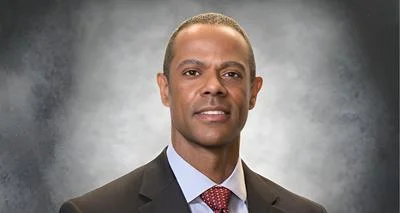Mayor Alan Webber and various groups favor increasing Santa Fe’s minimum wage with the rationale that it will make housing more affordable to low-income residence (“Council hears many pleas of support for new wage law,” Santa Fe New Mexican, September 25). While their intentions may be laudable and their hearts in the right place, they as well as the City Council should acknowledge the downsides of a higher minimum wage for Santa Fe. As with rent control and other public policies, the first impression is that they are beneficial to society; but when one looks deeper, the unintended consequences come into view.
Politicians tend to champion economic policies that cater to their supporters, rather than basing them on sound economic principles and empirical evidence (i.e. the facts). It has been my experience that most Americans are ignorant of economics, and politicians deceive them by espousing the shorter-term, perceived effects of policies. Gosh, how can anyone even think of opposing price controls when prices are soaring or a higher minimum wage to help those who cannot afford to live in Santa Fe? Typically, the unintended and longer-term consequences of economic policies get unnoticed by the general public. Politicians know this and advocate for those policies that often end up having disastrous effects but political appeal.
Returning to the topic at hand, most economists − both liberal and conservative economists − oppose a minimum wage for good reason. First principles of economics (Econ 101) and the predominance of empirical evidence raise serious reservations about the social desirability of a minimum wage. Its major effect is job loss. When labor becomes more expensive for businesses, small businesses in particular are forced to cut cost. This often means fewer new jobs, decreased hours, or layoffs. A minimum wage also makes lower-skilled jobs more vulnerable to automation − harming the very workers politicians intended to help.
Entry-level jobs are especially hard hit, with teenagers and other young workers suffering the most. Data from the Bureau of Labor Statistics show that teen jobless rates are the highest in states with a higher minimum wage. The overwhelming majority of academic studies conclude that raising minimum wages costs jobs, particularly for young and low-skilled workers.
Advocates of a minimum wage argue that it advances social justice and equity. While a minimum wage would benefit certain workers, it would hurt others. Just mentioned, some workers will lose their jobs plus low-income residences will pay more for goods and services (businesses will pass along their cost increases to consumers). Is it fair then to have an artificial wage that reduces employment for some low-skilled workers and raises the prices of goods and services that would have a disproportionate effect on those same workers?
As well summarized in a study by Seth Hill of the University of California, San Diego:
The negative consequences of minimum wages might fall disproportionately on those already struggling. These negative consequences could take several forms. Lesser-skilled workers could lose employment, retain employment but see hours or benefits reduced, or have others in their support network experience employment disruptions. Moreover, lesser-skilled workers could face higher prices in goods and services, such as food or housing. If higher minimum wages increase demand for low-priced housing, then some low-wage individuals or families might be priced out of the housing market and forced into homeless shelters, transitional housing, or the streets.
Studies have shown that minimum wages tend to reduce or eliminate other employee benefits by, for example, by increasing the deductibles on health insurance. In other words, if employers have to pay a higher wage, they will likely compensate by reducing other employee benefits.
In making housing more affordable to lower-income households, relying on a minimum wage is grossly inefficient and ineffective; other measures such as lifting regulatory and other restrictions on the building of new housing and an Earned Income Tax Credit are superior; they avoid the unintended consequences from warping the labor market with a minimum wage. History has shown that a preferred way to boost wages is to increase worker productivity via on-the-job training. Discouraging employers from hiring low skilled workers − which is what a minimum wage achieves − does nothing to help this.
Kenneth W. Costello is a regulatory economist and independent consultant who resides in Santa Fe








